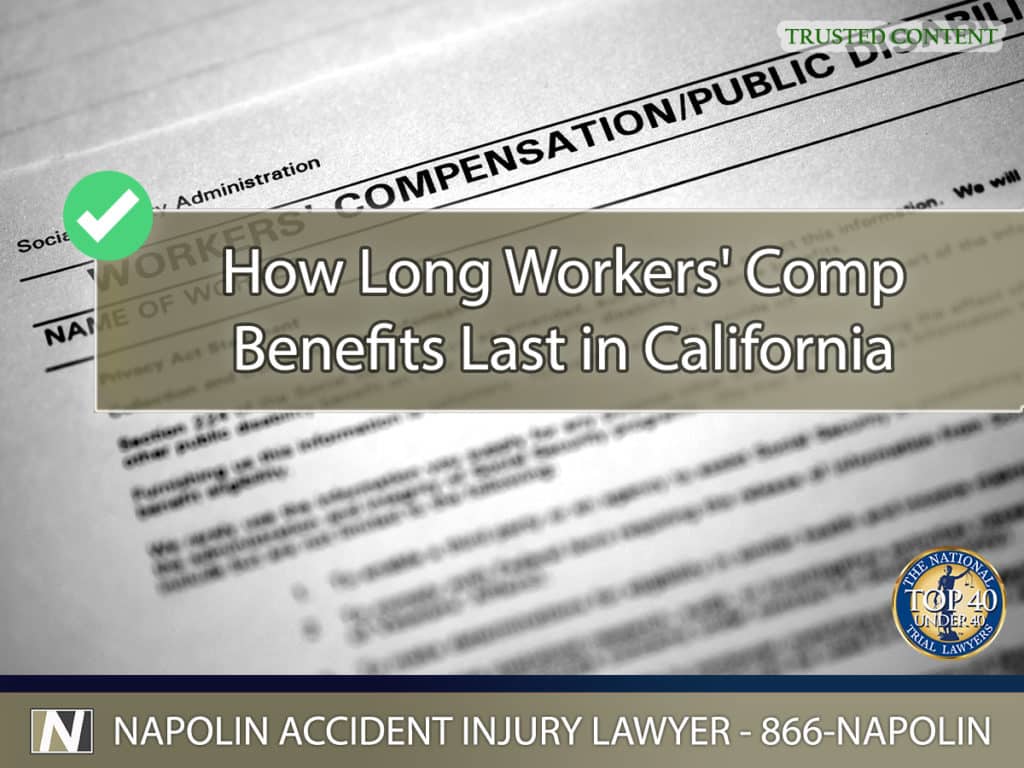In California, workers' compensation offers a lifeline to employees who have sustained injuries or illnesses due to their employment. This state-mandated insurance program not only ensures that injured workers receive medical treatment but also provides financial assistance during their recovery period. The length and type of benefits an injured worker can receive depend on the severity of their condition and the impact it has on their ability to work. Understanding these nuances is critical for anyone navigating the workers' compensation system in California. This comprehensive guide delves into the specifics of how long various workers' compensation benefits are available to support California's workforce.
Types of Workers' Comp Benefits and Their Duration in California
Types of Workers' Comp Benefits and Their Duration in California
Workers' compensation in California is designed to cover a wide range of support for employees who suffer from job-related injuries or illnesses. These benefits include covering medical expenses, providing compensation for lost wages due to temporary or permanent disability, and offering vocational rehabilitation if the worker cannot return to their previous job. The goal is to help injured workers return to work as soon as possible, or to support them in transitioning to new employment if necessary. The system is complex, with benefits varying based on the injury's nature and the employee's specific needs. A thorough understanding of these benefits is crucial for maximizing the support received.
Medical Care Benefits
For injured workers in California, medical care benefits are a cornerstone of the workers' compensation system. These benefits cover all necessary medical expenses related to the work injury, including doctor visits, hospital stays, medication, and any required rehabilitation services. The coverage continues for as long as the medical treatment is deemed necessary to help the injured worker recover. There is no set limit to the duration of medical care benefits, but the treatment must be approved as part of the workers' compensation claim. This ensures that injured workers receive appropriate care without the burden of medical costs, facilitating a smoother recovery process.
Temporary Disability Benefits
Temporary disability benefits serve as a financial safety net for workers who are recovering from a work-related injury or illness and are unable to perform their regular job duties. These benefits amount to two-thirds of the gross pre-tax wages the worker was earning at the time of injury, subject to minimum and maximum limits. Benefits are payable every two weeks, starting after a three-day waiting period unless the worker is hospitalized or unable to work for more than 14 days. The duration of temporary disability benefits is typically capped at 104 weeks within a period of five years from the date of injury. However, certain injuries, such as severe burns or chronic lung disease, may qualify for extensions up to 240 weeks.
Permanent Disability Benefits
When a work-related injury or illness results in permanent impairment, the worker may be eligible for permanent disability benefits. These benefits are determined based on the degree of permanent impairment as assessed by medical professionals, taking into account the worker's age, occupation, and earnings at the time of injury. Permanent disability payments are designed to compensate the injured worker for the loss of earning capacity due to the permanent effects of the injury. Payments are made every two weeks and can continue for an extended period, depending on the severity of the permanent disability. The calculation and duration of these benefits are complex, often requiring legal expertise to navigate effectively.
Supplemental Job Displacement Benefits
Supplemental job displacement benefits are available to workers who, due to permanent work restrictions, cannot return to their previous employment. This benefit comes in the form of a non-transferable voucher that can be used for educational retraining or skill enhancement at accredited institutions. The value of the voucher is $6000 for those injured on or after January 1st, 2013. It ranges from $4000 to $10000 for those injured before then and after January 1st, 2004. The voucher must be used within two years from the date it is received or five years from the injury, whichever comes later. This benefit aims to support injured workers in finding new employment opportunities that accommodate their physical limitations, promoting their reintegration into the workforce.
Death Benefits
Death benefits are provided to the dependents of workers who tragically lose their lives due to a job-related injury or illness. These benefits include burial expenses up to a legally specified limit and financial support akin to the temporary disability benefits the worker would have received. The amount and duration of the death benefits depend on the number of dependents and their relationship to the deceased worker. Spouses, children, and other dependents may receive monthly payments to help alleviate the financial impact of their loss. This aspect of workers' compensation underscores the system's role in providing comprehensive support to workers and their families in the face of tragedy.
How Long Workers' Compensation Benefits Last in California
How Long Workers' Compensation Benefits Last in California
Navigating the workers' compensation system in California can be daunting, especially during the stressful period following a work-related injury or illness. Understanding the duration and scope of the benefits you are entitled to is crucial for ensuring that you and your family are adequately supported throughout the recovery process. For those seeking guidance or facing challenges with their workers' compensation claims, professional legal assistance can be invaluable. By reaching out to Napolin Accident Injury Lawyer at (909) 962-8415, you can secure a free consultation and benefit from our extensive litigation experience. Our commitment to advocating for the rights of injury victims across California ensures that you have the support you need to navigate the complexities of the workers' compensation system and secure the benefits you rightfully deserve.

